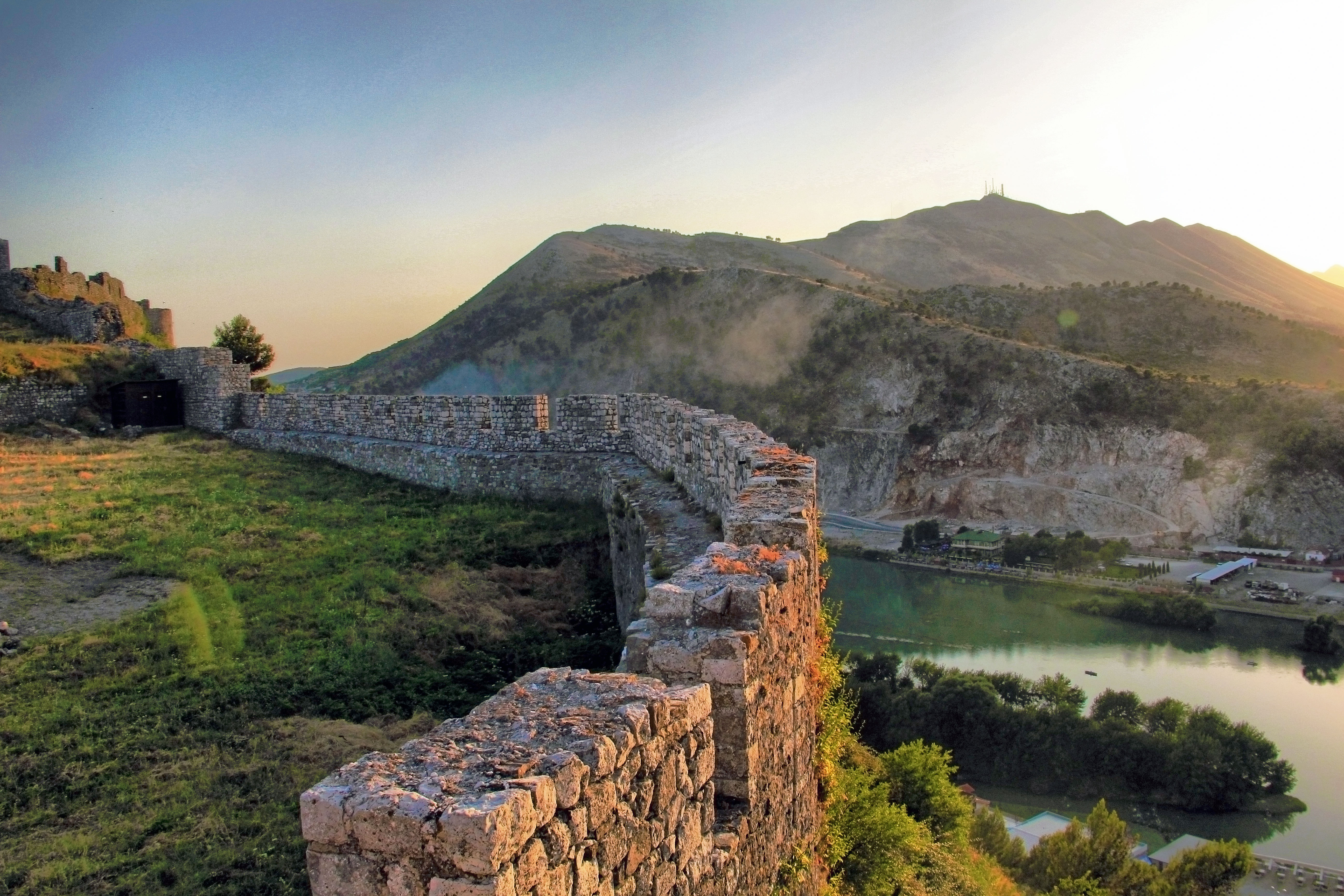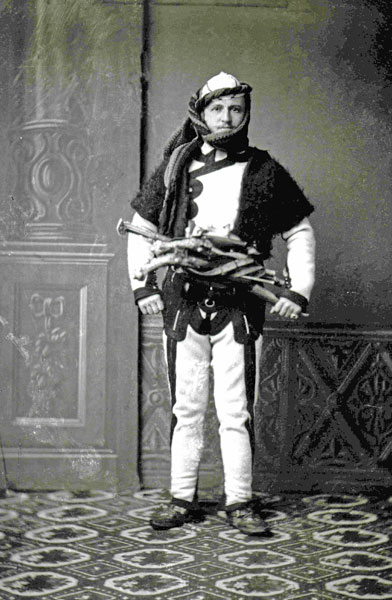|
Donat Kurti
Donat Kurti (1903–1983) was an Albanian Albanian franciscan friar, educator, scholar and folklorist. Donat Kurti was born in Shkodër, back then Ottoman Empire). He studied theology and philosophy at the Collegium Antonianum in Rome and was ordained as a Franciscan priest in 1927. After his return to Shkodra, he taught at the Illyrian college. Kurti was particularly interested in Albanian folklore and epic verse. With Bernardin Palaj, he published the best-known cycles of epic poetry in ''Kângë kreshnikësh dhe legenda (The Songs of the Frontier Warriors and Legends)'', Tirana, 1937. After World War II, as many other Catholic priests, Kurti was arrested by the communists in 1946 and spent the next 17 years in various prisons (in Shkodra, Burrel, Beden, and other internment camps). During this period he translated the New Testament into Albanian. He is also remembered for his two-volume ''Prralla kombtare mbledhë prej gojës së popullit (National Folk Tales Collected from the ... [...More Info...] [...Related Items...] OR: [Wikipedia] [Google] [Baidu] |
Shkodër
Shkodër ( , ; sq-definite, Shkodra; historically known as Scodra or Scutari) is the List of cities and towns in Albania, fifth-most-populous city of Albania and the seat of Shkodër County and Shkodër Municipality. Shkodër has been List of oldest continuously inhabited cities, continuously inhabited since the Early Bronze Age ( 2250–2000 BC), and has roughly 2,200 years of recorded history. The city sprawls across the Plain of Mbishkodra between the southern part of Lake Skadar, Lake Shkodër and the foothills of the Albanian Alps on the banks of the Buna (Adriatic Sea), Buna, Drin (river), Drin and Kir (river), Kir rivers. Due to its proximity to the Adriatic Sea, Shkodër is affected by a seasonal Mediterranean climate with Continental climate, continental influences. An urban settlement called ''Skodra'' was founded by the Illyrians, Illyrian tribe of Labeatae in the 4th century BCE. It became the capital of the Illyrian kingdom under the Ardiaei and Labeatae and was one ... [...More Info...] [...Related Items...] OR: [Wikipedia] [Google] [Baidu] |
Communism In Albania
The People's Socialist Republic of Albania, () was the Marxist-Leninist state that existed in Albania from 10 January 1946 to the 29 April 1991. Originally founded as the People's Republic of Albania from 1946 to 1976, it was governed by the Party of Labor of Albania (PLA) had a constitutionally enshrined monopoly on state power, which it enforced by colonising the state and other mass organisations, and by controlling Albania's supreme organ of state power, the People's Assembly. Communist Albania was established after the end of World War II, succeeding the communist-dominated National Liberation Movement-led (or LANÇ) Democratic Government of Albania. Under the leadership of the PLA and especially Enver Hoxha, Albania pursued an anti-revisionist Stalinist form of Marxism-Leninism, which led to the Albanian-Soviet split in 1956 and then the Sino-Albanian split in 1978. The state was first led by Enver Hoxha from 1946 to 1985, and then by Ramiz Alia from 1985 to 1991. ... [...More Info...] [...Related Items...] OR: [Wikipedia] [Google] [Baidu] |
Translators Of The Bible Into Albanian
Translation is the communication of the meaning of a source-language text by means of an equivalent target-language text. The English language draws a terminological distinction (which does not exist in every language) between ''translating'' (a written text) and ''interpreting'' (oral or signed communication between users of different languages); under this distinction, translation can begin only after the appearance of writing within a language community. A translator always risks inadvertently introducing source-language words, grammar, or syntax into the target-language rendering. On the other hand, such "spill-overs" have sometimes imported useful source-language calques and loanwords that have enriched target languages. Translators, including early translators of sacred texts, have helped shape the very languages into which they have translated. Because of the laboriousness of the translation process, since the 1940s efforts have been made, with varying degrees o ... [...More Info...] [...Related Items...] OR: [Wikipedia] [Google] [Baidu] |
People From Shkodër
The term "the people" refers to the public or Common people, common mass of people of a polity. As such it is a concept of human rights law, international law as well as constitutional law, particularly used for claims of popular sovereignty. In contrast, a people is any plurality of Person, persons considered as a whole. Used in politics and law, the term "a people" refers to the collective or community of an ethnic group or nation. Concepts Legal Chapter One, Article One of the Charter of the United Nations states that "peoples" have the right to self-determination. Though the mere status as peoples and the right to self-determination, as for example in the case of Declaration on the Rights of Indigenous Peoples, Indigenous peoples (''peoples'', as in all groups of indigenous people, not merely all indigenous persons as in ''indigenous people''), does not automatically provide for independence, independent sovereignty and therefore secession. Indeed, judge Ivor Jennings i ... [...More Info...] [...Related Items...] OR: [Wikipedia] [Google] [Baidu] |
Albanian Folklorists
Albanian may refer to: *Pertaining to Albania in Southeast Europe; in particular: **Albanians, an ethnic group native to the Balkans **Albanian language **Albanian culture **Demographics of Albania, includes other ethnic groups within the country *Pertaining to other places: **Albania (other) **Albany (other) **St Albans (other) *Albanian cattle *Albanian horse *''The Albanian'', a 2010 German-Albanian film See also * *Olbanian language * Albani people *Albaniana (other) *Alba (other) Alba is the Scottish Gaelic name for Scotland. Alba or ALBA may also refer to: Arts, entertainment and media Fictional characters * Alba (Darkstalkers), Alba ''(Darkstalkers)'', a character in the Japanese video game * Alba (The Time Traveler's ... {{Disambiguation Language and nationality disambiguation pages ... [...More Info...] [...Related Items...] OR: [Wikipedia] [Google] [Baidu] |
Albanology
Albanology, also known as Albanian studies, is an interdisciplinary branch of the humanities that addresses the language, costume, literature, art, culture and history of Albanians. Within the studies the scientific methods of literature, linguistics, archeology, history and culture are used. However the Albanian language is the main point of research of the studies. Studies Johann Erich Thunmann in the 18th century was probably the first Albanologist. He supported the theory of the autochthony of the Albanians and also presented the Illyrian origin theory. Later on Gustav Meyer proved that the Albanian language was part of the Indo-European family. In the 20th century such studies were deepened by Norbert Jokl, Milan Šufflay, and Franz Nopcsa von Felső-Szilvás, as well as Karl Reinhold, and Eqrem Çabej. The studies of Albanology were more institutionally supported in Albania starting in 1940 with the opening of the Royal Institute of the Albanian Studies, which had ... [...More Info...] [...Related Items...] OR: [Wikipedia] [Google] [Baidu] |
Shtjefën Gjeçovi
Shtjefën Konstantin Gjeçov-Kryeziu or Stjepan Gečević (12 July 1874 – 14 October 1929) was an Albanian Catholic priest, nationalist, ethnologist, and folklorist from Kosovo. He is regarded as the father of Albanian folklore studies. Life Gjeçovi was born on 12 July 1874 (some sources mention 3 October 1873) in Janjevo, Prizren Vilayet, Ottoman Empire (now Kosovo). He was educated by the Franciscans in Bosnia (under control of Austria-Hungary) and moved to Ottoman Albania in 1896, having become a priest, and spent the years between 1905 and 1920 among the Albanian tribes, Albanian highland tribes, collecting oral literature, tribal law, archaeology and folklore. Gjeçovi was also an important collector of the ''Albanian Songs of the Frontier Warriors''. An Albanian patriot and a diligent researcher on everything related to the Albanian past, he was loathed by the Serbian population and the local authorities. He was shot on 14 October 1929, in the village of Zym near Gjakova, ... [...More Info...] [...Related Items...] OR: [Wikipedia] [Google] [Baidu] |
Thimi Mitko
Thimi (Euthimio) Mitko (1820 – March 22, 1890) was an activist of the Albanian National Awakening and folklorist. Mitko was born in Korçë, Albania (then Ottoman Empire), where he attended the local Greek school. His uncle, Peti Mitko, had been one of the leaders of the Albanian Revolt of 1847 in Korçë and Tepelenë against the Turkish Tanzimat legislation. Both left Albania in 1850, moving first to Athens, Greece, then to Plovdiv, Bulgaria and finally to Vienna, Austria, where Thimi Mitko worked as a tailor. In 1866, he emigrated to Egypt, devoting himself to the Albanian nationalist movement and setting up a successful trading business in Beni Suef where he died on 1890. Mitko collected Albanian folklore material from 1866. He corresponded with Italian prime minister Francesco Crispi, Jeronim De Rada, Dhimitër Kamarda, Dora d'Istria, Jan Urban Jarník, Kostandin Kristoforidhi, and Gustav Meyer, providing Kamarda with folksongs, riddles and tales for the latter' ... [...More Info...] [...Related Items...] OR: [Wikipedia] [Google] [Baidu] |
Catholicism In Albania
The Catholic Church in Albania () is part of the worldwide Catholic Church, under the spiritual leadership of the Pope in Rome. At the 2023 census, the percentage of Catholics was 8.38%. Catholicism is strongest in the northwestern part of the country, which historically had the most readily available contact with, and support from, Rome and the Republic of Venice. Mirditë has the highest concentration of Catholics while, Shkodër is the center of Catholicism in Albania. More than 20,000 Albanian Catholics are located in Montenegro, mostly in Ulcinj, Bar, Podgorica, Tuzi, Gusinje and Plav. The region is considered part of the Malsia Highlander region of the seven Albanian Catholic tribes. The region was split from Ottoman Albania after the First Balkan War. There are also scattered Albanian Catholics in Kosovo and North Macedonia, with the greatest concentration being in the vicinity of Gjakova. There are five dioceses in the country, including two archdioceses plus an Ap ... [...More Info...] [...Related Items...] OR: [Wikipedia] [Google] [Baidu] |


